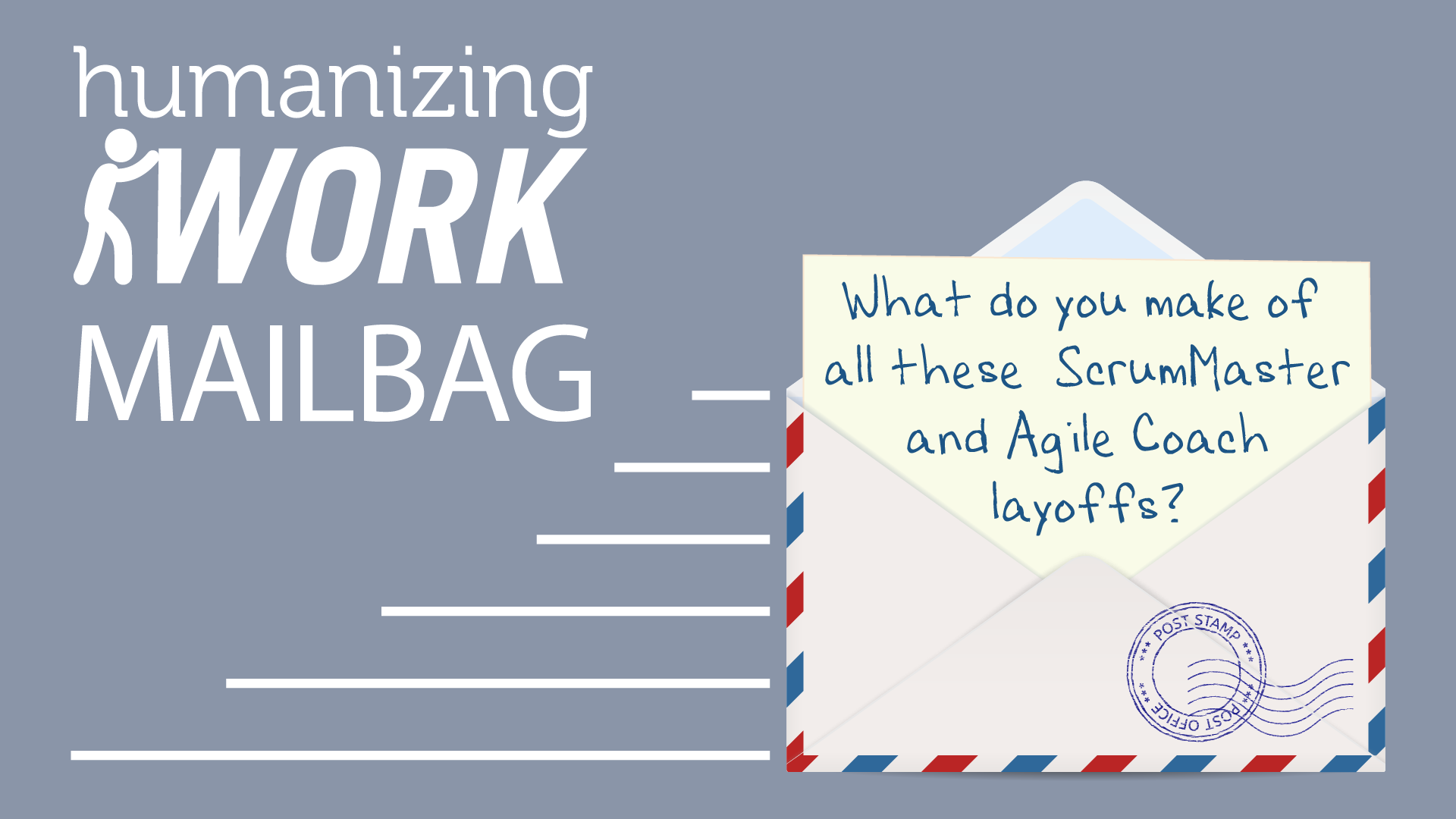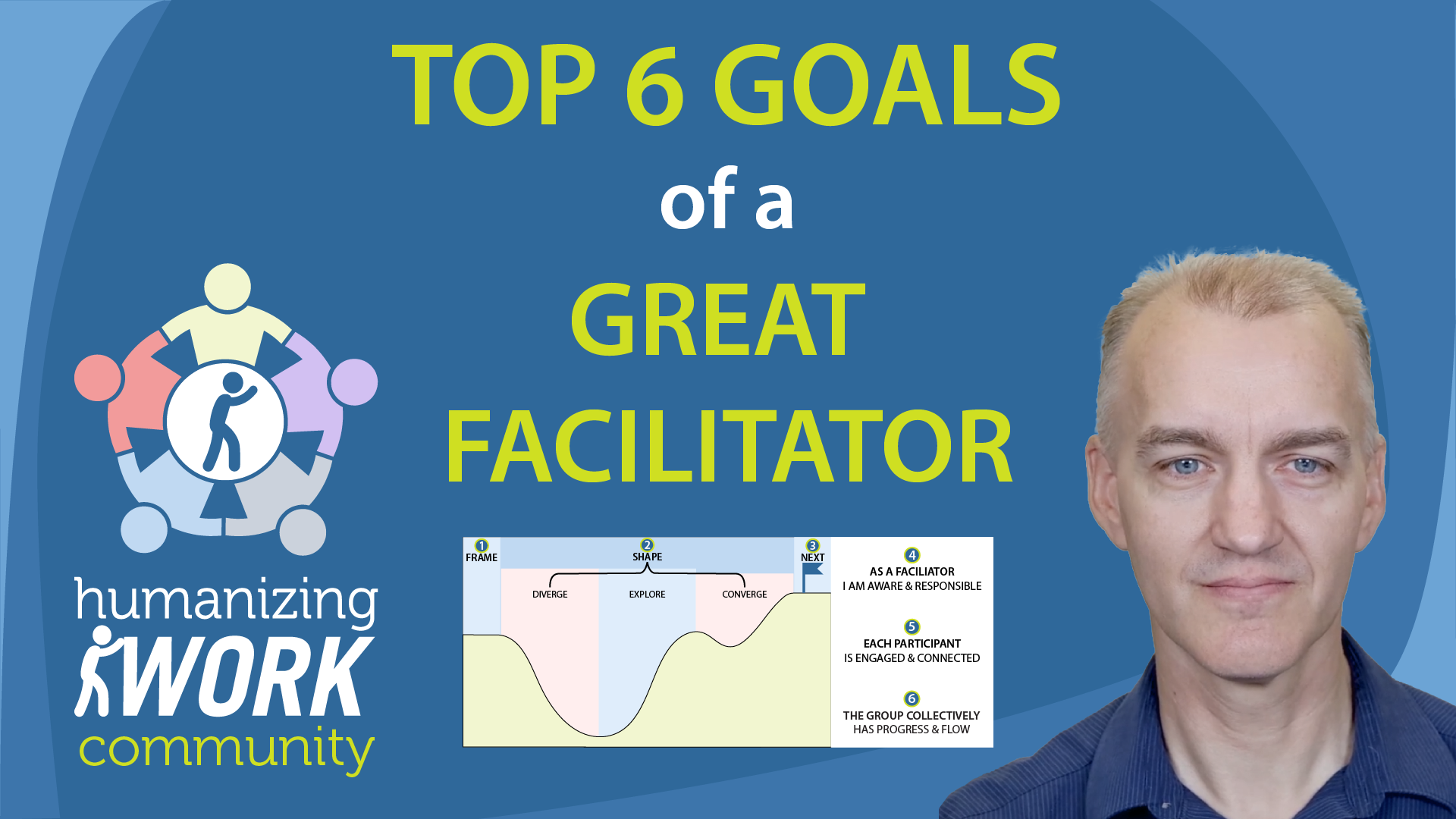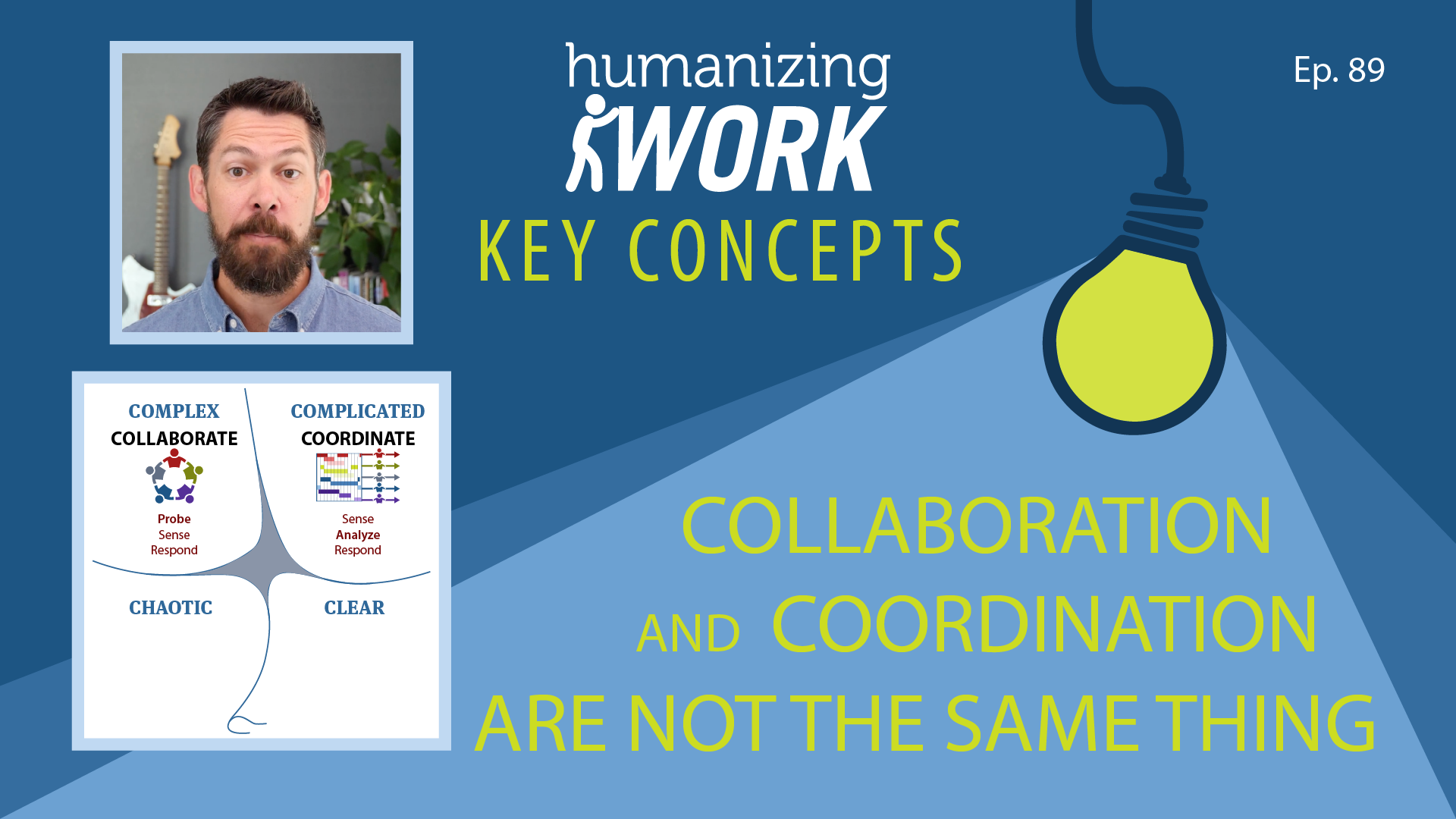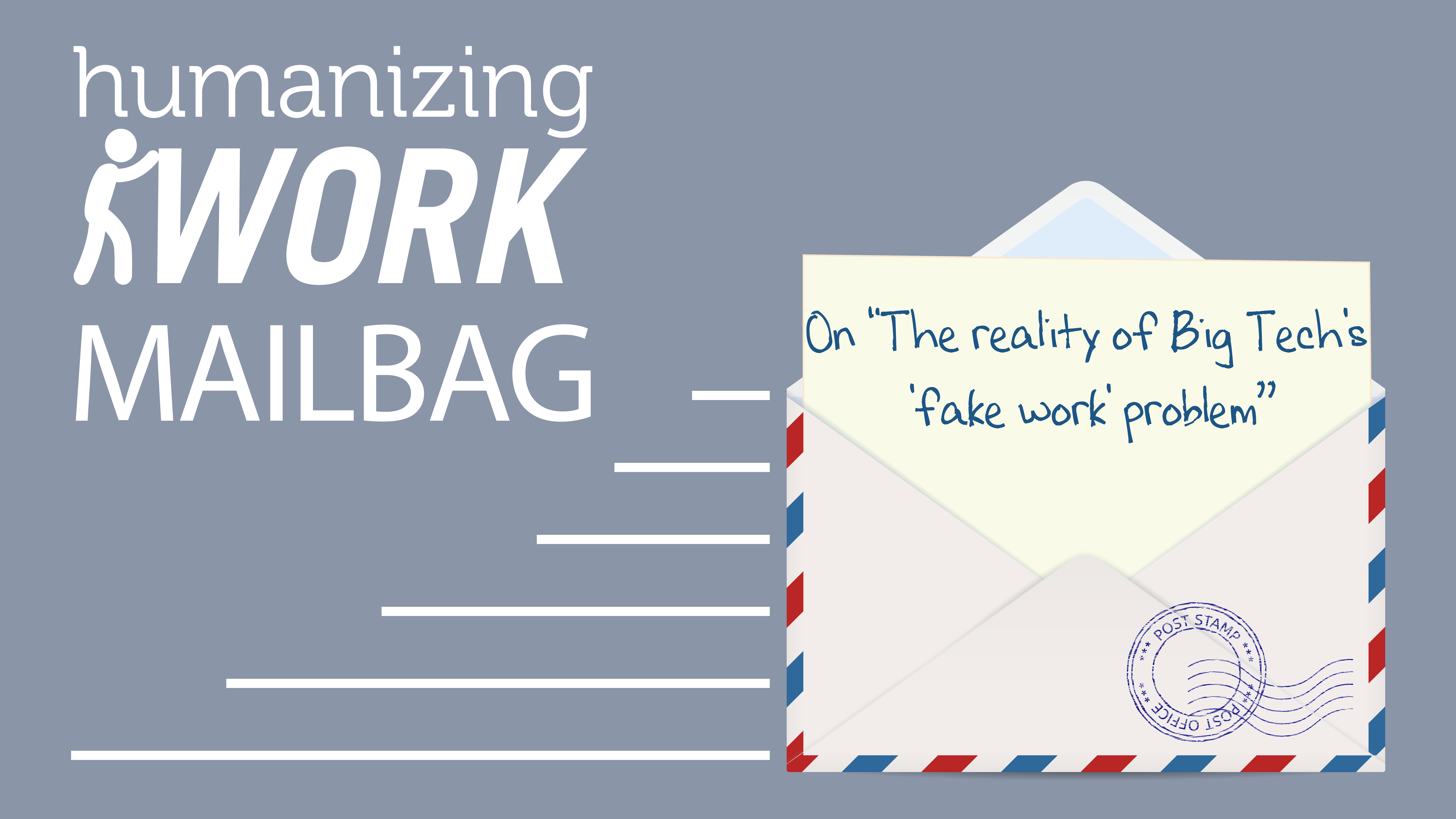In this episode, Richard and Peter answer the question: “What are your thoughts on all these ScrumMaster and Agile Coach layoffs? Many companies seem to be eliminating these roles altogether. What do you make of it?” Read More

Surveys show people say less than a quarter of the meetings they attend are a valuable use of their time. In this recording of the August Humanizing Work Meetup, Peter introduces the 6 goals an effective facilitator achieves in every meeting and how to use those to ensure your meetings are reliably worth the participants’ time. Read More

In this episode, Richard and Peter answer the question: “I just got promoted from developer to development manager, and I want to do my new role well. What should I be thinking about? What should I avoid?” Tune in to learn 3 ways new managers often mess things up and 3 things to do instead. Read More

Another “Scrum is terrible and here’s why” post went viral on social media recently. In this episode, Richard and Peter reflect on the post, the responses to it, and what we can learn from the whole thing. Read More

You've seen them on LinkedIn: the “manager bad, leader good” infographics and listicles. But there are over a million people in the US with "manager" in their job title—surely there are lots of good ones.
In this episode, Peter and Richard explore the origin of the manager vs leader meme and reflect on whether it's actually useful for improving leadership. Read More

In this episode, Richard and Peter talk about quick wins, how they often emphasize the quick part but miss the win, and what to do instead at the start of a big initiative. Read More

In this episode, Richard explains the distinction between collaborating and coordinating, when to do one or the other, and the implications for team structure, tools, and geography. Read More

In this episode, Richard and Peter discuss an article in Business Insider, “The reality of Big Tech's 'fake work' problem.” They discuss the incentives that create over-hiring and “fake work” and the antidote to it. Is it all just lazy managers, as the article suggests? Read More

In this episode, Richard and Peter answer the question: “All my stakeholders want all their stuff right now. What do I do?” Read More

In this episode, Richard and Peter answer the question: “My team members always grab things to work on separately in parallel. How can I get us collaborating more as a team?” Read More










